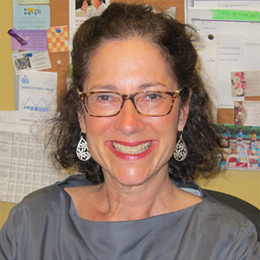June 15 is World Elder Abuse Awareness Day. We talk to Zoë Levitt, Registered Social Worker, Geriatric Psychiatry, TGH, about elder abuse.
 What is elder abuse?
What is elder abuse?
Elder abuse is any harm done to an older person by someone who is in a position of trust. The older person is most often dependent on the abuser for basic needs such as food, shelter, medical needs. Often the abuser is an adult child or family member, but it can also be a caregiver or other professional, a friend or even the mail delivery person. Abuse is often one or a combination of the following forms: emotional/psychological, physical, financial, neglect and/or sexual.
Why is elder abuse an issue right now?
Elder abuse is a world-wide social and health problem that affects all socio-economic groups, and crosses all gender, ethnic and cultural lines. The World Health Organization designated each June 15 as World Elder Abuse Awareness Day. Medical advances are enabling people to live longer, often supported by family and community services. Current Canadian statistics indicate that about 10% of older adults are abused but this represents only reported incidents and we are confident that most abuse is unreported.
Who are the victims of elder abuse and where does it take place?
Most abused older adults are mentally competent and are able to make decisions for themselves. It can happen in hospitals, long-term care facilities or in private homes. Examples might be rough handling while providing personal care, neglecting to unwrap food items on meal trays, leaving someone to sit in a chair, or in soiled incontinent pads for an extended period of time. Current Canadian statistics indicate that about 10% of older adults are abused but this represents only reported incidents.
What are the warning signs and what should you do about it?
The abuser may not leave their older relative alone or let him/her talk while being interviewed or helped by staff. The older person may suffer from depression, fear or anxiety. Malnutrition, poor hygiene and unexplained bruises or injuries might be other signs. Social isolation and/or the family member not allowing services in the home can all be warning signs as well. No one should jump to conclusions, but all concerns should be taken seriously. If a health care professional identifies a potential problem and does not know what to do, the most responsible action is to talk to a social worker.
Once someone is referred to a social worker and abuse has been identified, what's the process for managing the problem or finding a solution?
The social worker will talk with the older person in a thoughtful and engaging way. I use the phrase "thoughtful and engaging" on purpose, as older people are reluctant to talk about their abuse with anyone because of shame, fear of retaliation or of being placed in a nursing home against their will by the abuser. The social worker will also reassure the person that their conversations are strictly confidential. There are many options the social worker can discuss with the abused older person such as helping that person find alternative living arrangements, addressing safety plans, and including the abuser in family therapy to name only a few. There are also community based social workers who work with abused older adults. These social workers will meet confidentially with the abused person.
How did you become interested in working in this area?
Many years ago, we had a cognitively intact older patient who was admitted to hospital with significant bruises on her body. There were no medical reasons for these bruises. This woman lived with her adult daughter and the team determined that she was being physically and emotionally abused by her. I met with this patient several times in an effort to discuss this with her and present options. Ultimately, she went back to live with her daughter and refused community services. I always wondered what I could have done to have better helped her. I then decided to make elder abuse an area that I wanted to pursue. Older abused adults present with many complex emotional, cultural, physical, medical and social needs. A social worker can help them to carefully untangle these needs and to advocate on their behalf when they are unable to do so themselves.
